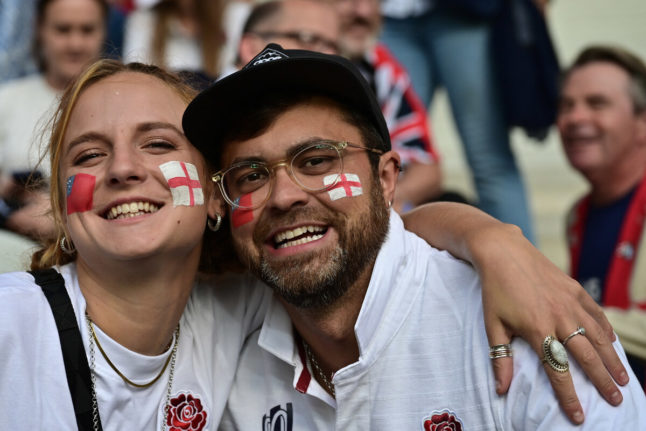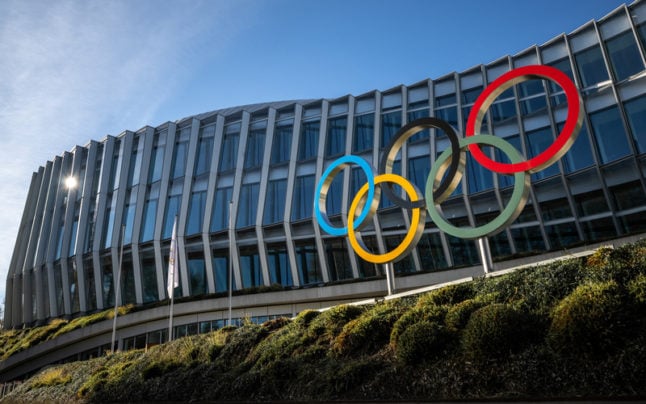When the Rugby World Cup kicked off in host country France on September 8th, there were 20 international sides battling it out for the title.
Just over a month later, those 20 have been whittled down to eight – defending champions South Africa, world number one side Ireland, France as well as New Zealand, England, Wales, Argentina and Fiji.
Even though Switzerland has never taken part in a rugby world championship, you might still be following a team or simply want to get involved. Here’s how to enjoy the action in the run up to the final on October 28th.
In person
If you’re up for trying to get tickets and travelling, you might get lucky. The Rugby World Cup ticket site has the latest official information on ticket availability. At the time of writing, Ireland v New Zealand and France v South Africa at Stade de France were both sold out, but some tickets were available for England v Fiji and Wales v Argentina, in Marseille.
The above link also offers access to the official Rugby World Cup resale site, where fans can sell-on purchased tickets at face value if, for whatever reason, they no longer wish to attend certain games.
The rugbyworldcup.com site is the only official resale site for tournament tickets, so if you see any for sale on other platforms be very, very careful that it’s not a scam.
You should also be aware that hotel bargains (or even vacant rooms) are going to be hard to come by in and around Marseille and Saint-Denis, and that the cost of travel may well be high.
On TV
For German-speakers, Pro7 has the broadcasting rights for the Rugby World Cup. All 48 matches of the tournament will be shown in the livestream on ran.de. In addition, 35 matches can be seen for free on Pro7 MAXX.
Those who prefer other languages can also find matches elsewhere. The English channel ITV is broadcasting the tournament, and it can be received via most Swiss providers, according to Swiss site, Watson. The French channel TF1 will also show some matches.
It also looks like people in Switzerland will be able to watch the semi-finals and the final (see the dates below) on Swiss broadcaster SRF.
At a sports bar
There are several pubs in Switzerland that will show the games, or at least most of them.
The Paddy Reilly’s Irish bar, which shows big sports games, has locations in Zurich, Basel and Freiburg
You could also try one of the Mr. Pickwick Pubs, which have locations in Zurich, Baden, Lucerne, Zug, Bern and Basel. It has plenty of British and Irish beers if that’s your thing.
Kennedy’s Irish Pub and McGee’s in Zurich could also be worth checking out, and The Lady Godiva Pub in Geneva is an English bar that shows sports.
Meanwhile, the Gallus Pub in St. Gallen shows most big sporting events.
Here’s a look at the matches coming up and the dates to keep in mind:
Saturday, October 14th
5pm (CET): Wales v Argentina (Stade de Marseille)
9pm: Ireland v New Zealand (Stade de France, Saint-Denis)
Sunday, October 15th
5pm: England v Fiji (Stade de Marseille)
9pm: France v South Africa (Stade de France, Saint-Denis)
Semi-finals
Friday, October 20th
9pm: Wales or Argentina v Ireland or New Zealand (Stade de France, Saint-Denis)
Saturday, October 21st
9pm: England or Fiji v France or South Africa (Stade de France, Saint-Denis)
Third-place play-off
Friday, October 27th
9pm (Stade de France, Saint-Denis)
Final
Saturday, October 28th
9pm (Stade de France, Saint-Denis)



 Please whitelist us to continue reading.
Please whitelist us to continue reading.
Member comments